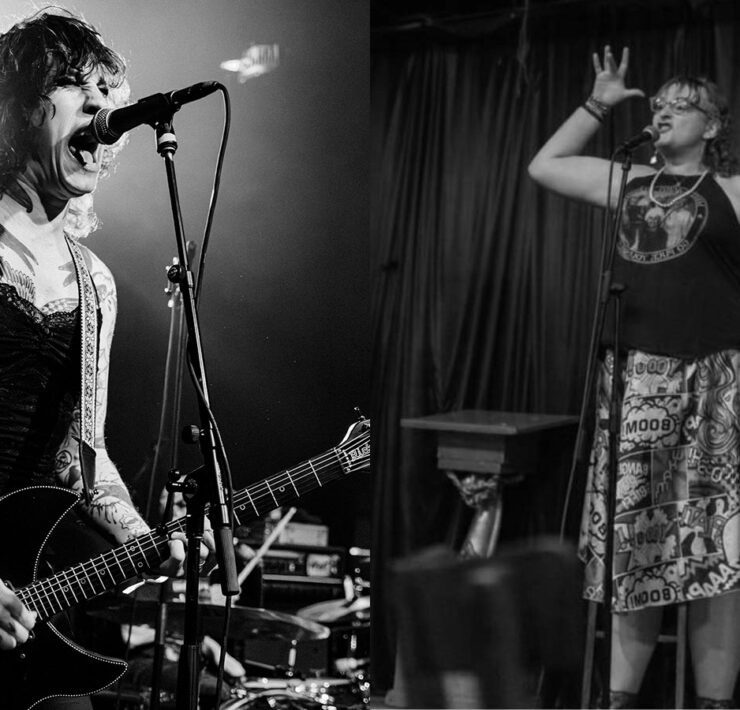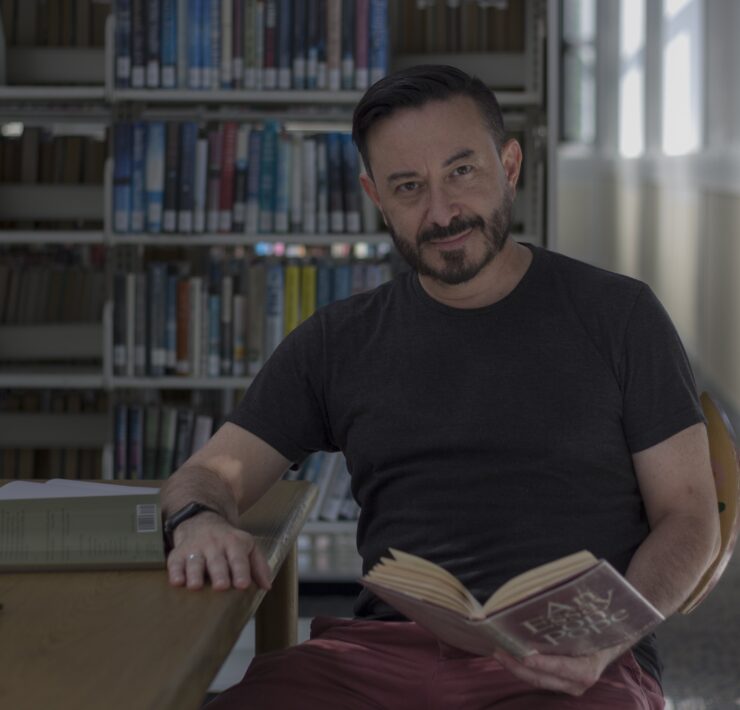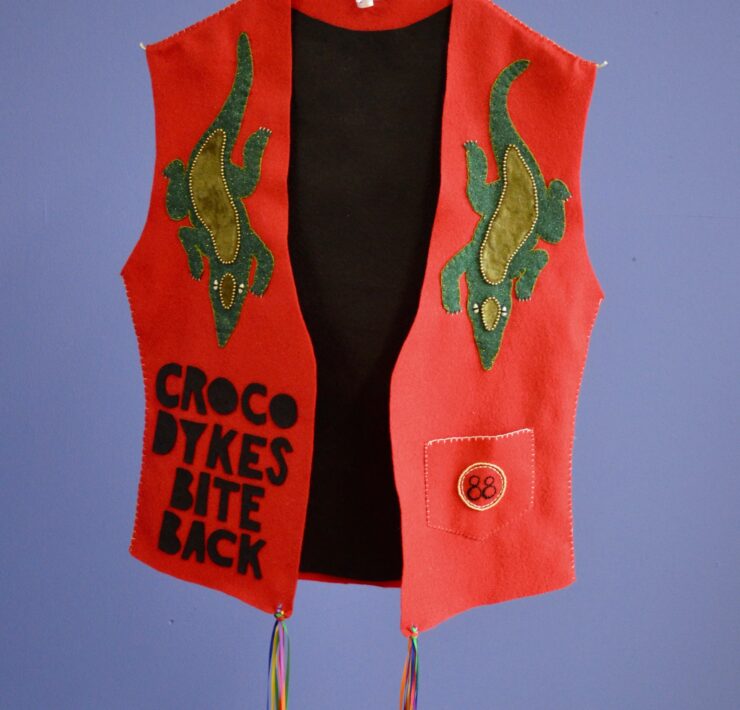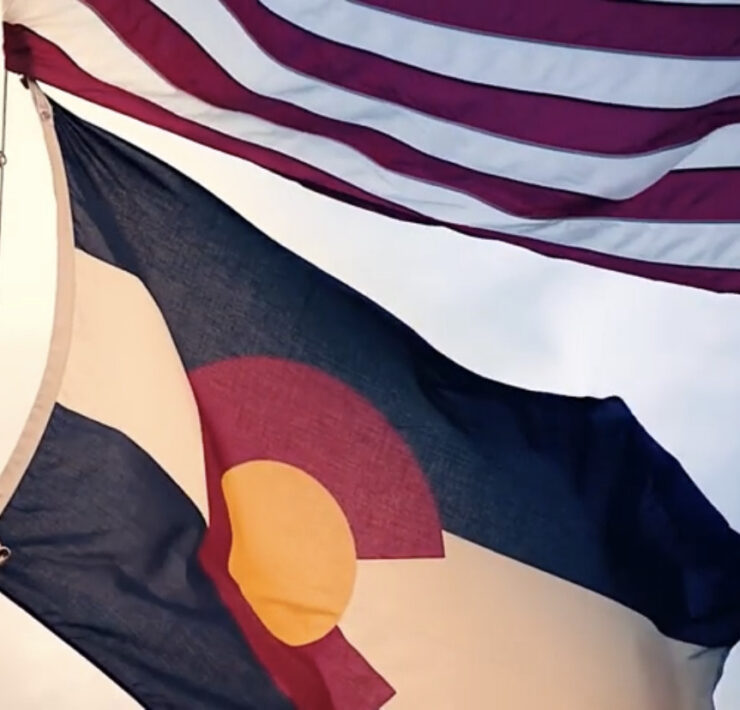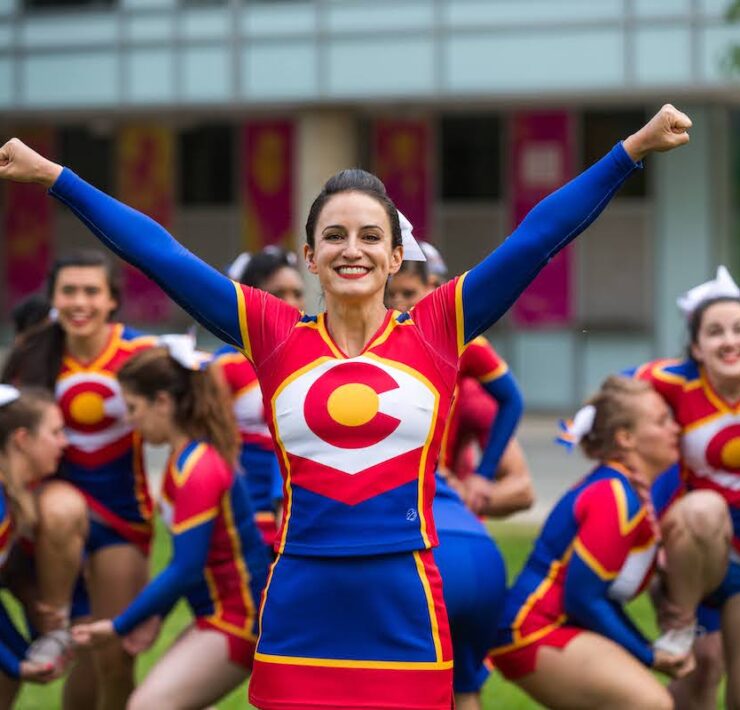Being Queer Now: Young Poets Speak Out
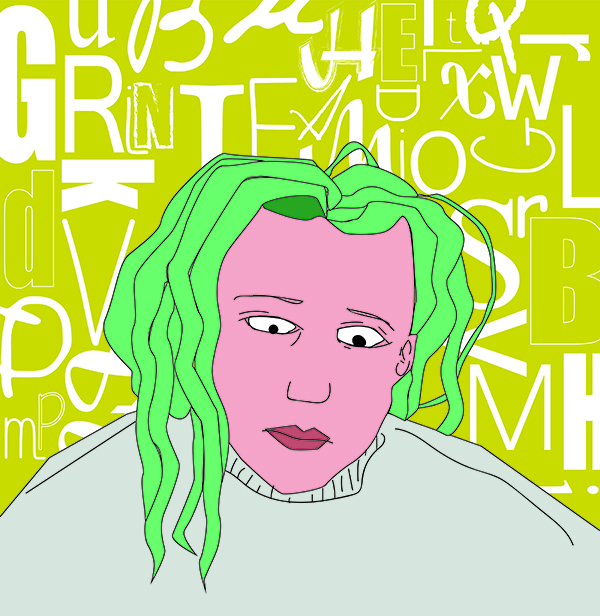
Paul Bindel loves food preservation, poetry, and theatre. He lives…
After Jessie Hernandez was shot by police in January 2015, Lulu Vigil felt called to put down her pen and take to the streets “I could write a poem, but it didn’t mean that everyone was going to listen to it,” she says. “I had to let it be known publicly. Queer kids of color were being murdered, and no one was doing anything about it. Jessie [Hernandez] could have been me. I couldn’t just sit idle while everything was happening.”
Vigil, an indigenous queer 17 year old from southwest Denver, was highly involved in the slam poetry scene, competing nationally with her team Minor Disturbance at Brand New Voices in 2014. She was a 2015 finalist for Denver’s Youth Poet Laureate and won the 2015 slam competition for Denver Public schools. However, post-Ferguson, her heightened consciousness led to activism, inspiring her to organize the United Students March in December 2014; to help with marches for Paul Castaway, an indigenous man also shot by Denver police last July; and to protest Hernandez’s death.
Has your activism resurfaced in your poetry?
Slam poetry and being an activist go hand in hand; slam poetry is a form of activism. You are using your voice to talk to the issues you see in the community. In Native culture, having spoken word is a tradition of keeping the word alive. That’s really what slam poetry and activism are. In order to keep the revolution alive and moving, making sure people know about it, we have to keep poetry and activism in front of people.
You’ve written about pansexuality. Why do you think more young people identify as pan?
The idea of pansexuality is that your attraction is not bound to one gender or the other. Being pansexual involves explaining what it is to others — gathering the courage to constantly explain it, especially as a high school student. It often feels like you have to validate yourself as queer. I may be in a heterosexual relationship at one moment, but that doesn’t mean that I’m not queer, and identifying as pansexual helps me to communicate that.
What is it like being a young queer person now?
Queer people have overcome many obstacles, but today, many take for granted the work that’s been done. Honestly, being queer now is really chill. Society is open-minded, and we have many openly queer role models. The real issue is youth accepting themselves before they share their identity with the world. A big part of it is being comfortable in who you are, finding your group of people.
How does your native identity intersect with queerness?
It’s weird because you learn what it is to be native and what it is to be queer, and you have to put them together. You have no idea that natives were open to sexuality before colonization, then you realize that people who have gone through colonization have the colonized mindset of Christianity. Part of the reason natives are not accepting is because they colonized us like that, and it’s been beaten into us … being native, being young, being urban, and being queer is a lot of having to gather yourself and hold on tight.
How so?
A lot of my high school life has been figuring out what is mine, figuring out what pieces I can claim. Most of [what I claim] predates colonization. Being queer and different was a part of being holy. You were more than normal. As an urban Indian, that history is not brought into the household. Being queer was ok once upon a time, but the fact that it isn’t ok now in my culture means that you have to decolonize it on your own. You have to decolonize queerness.
What does it mean to decolonize queerness?
To decolonize queerness is to realize that being two-spirited is ok. The Creator gave you something more; the Creator blessed you. It’s realizing what is yours and not letting anybody talk you out of it.
What does the future hold as you head off to college?
I only have three goals in life, and if I achieve these as an adult I’m sure I’ll be happy. I want to help others, either through my activism or through my poetry, I want to continue performing, and I want to travel. If I can do all of those at the same time, it’ll be a good outcome.
Lulu Vigil’s first book of poetry High School Smoke Signals will be released on March 11 by Café Cultura.
Morgynne Tora was hooked on slam poetry from the moment their friend invited them to an open mic at the Mercury Café in 2010, and they toured the slam circuit with Minor Disturbance in 2015 to DC, LA, Atlanta, Albuquerque, and Houston, but it wasn’t until last summer that they felt like they discovered their voice. In the summer, they went to check out a newly opened Kava shop in Denver. Tora, a 19 year old Afro-Fijian who grew up in East Denver, was shocked. “They were serving Kava [a traditional Pacific Island drink] flavored with piña colada, and I thought, ‘This is so gross. This is my culture.’ I wrote a poem, calling out the owner for profiting off of native culture. When I read it, people understood the theme of profiting of appropriations. But when I went to Hawaii, I performed it in front of people from the South Pacific, and it was a deeper connection. People came up to thank me. I realized I needed to be a voice when people look for young people speaking from the South Pacific Islands.”
Tora wanted not only to speak as a young person to their Pacific Islander community but also to speak as an Afro-Fijian to broader American society: “Pacific Islanders are still treated as a tourist attraction. Most people can’t even point Fiji on a map. I didn’t like feeling erased, so I started speaking. My poetry is an assertion that we’re still here. We survived.”
How else did you sense your calling to poetry?
Being in Atlanta this last summer was liberating — 70% of the poets at Brand New Voices are black. I am Afro-Fijian, but I had never been in a place that was afrocentric, that was safe for black, queer artists. A lot of folks are stuck in the story that blackness only exists in American blackness, but I was able to see the possibility to share mine as a black Fijian.
How did you connect the dots between your cultural identity and poetry?
Like many indigenous cultures, story and legends play a big role in keeping Fijian culture alive. When I was [at college], I realized that poetry spoke to me because I had a duty to relay the story of myself and the story of my people. It’s not so much focused on myself. It’s focused on how can people understand their culture and the story of our survival. I want to preserve our oral history
Was Fijian culture important to your family growing up?
I grew up Christian, and my family was very traditional. My mother was strict, born and raised in the church. In 2012, someone outed me to my mom, which led to a shift in my spiritual identity. As an indigenous person from the South Pacific, I had to decolonize myself and recognize that isn’t my god or my culture. The process brought me to see identities that exist in indigenous culture that are not recognized in white America. I am speaking now from where I stand as a queer Pacific Islander and asserting, ‘We have always existed. Our gender identities have been colonized and decolonized over and over again.’
What does your spirituality look like now?
Fijian indigenous spirituality is connected to ancestral energy and recognizing that you are part of it at every moment. Our path is not selfish, but our duty is to tell stories or to preserve traditions. My sister has an affinity for all of the traditions and norms. She knows what to do at functions. My duty is storytelling, keeping oral history.
Do you experience conflict from attending a religious university?
Church policy is that you can be queer in the church, but you cannot act on your feelings, so you’re celibate. I am not out [at school] because it’s a more traditional atmosphere of Pacific Island culture and religious culture mixed together. I have kind of drifted away from the church just because I can’t exist in my own intersections and also be in the church. They’re not there yet, and I don’t think they will be any time soon.
But you feel connected to people in the poetry community?
The poetry community has given me an inclusive space in my own gender identity and sexuality. I feel valid and affirmed because poetry is all about living your truth, as long as it doesn’t harm yourself or other people. It’s been amazing to be a part of a community that sees me in all of my intersections. That means the world to me.
What is your perspective on queer culture as a whole?
In the states, I think that white cis gay men are the face of the movement. There are spaces that are inclusive of queer people of color. But at large, it’s still colonial and restricted to binaries — the way we think of identity is still rigid. That’s not from individual people, but as a system, it’s whitewashed and has a culture of erasure.
What do you hope for young queer people?
My big thing is safety. I want people to feel safe and have safe spaces. From where my craft comes from, I always say that new language and vocabulary is how we get free. Once we have vocabulary about the things that are hurting us and language for the things building up inside of us, we can liberate ourselves. I want young queer people to have vocabulary to talk about their identities and I want them to feel safe.
What's Your Reaction?
Paul Bindel loves food preservation, poetry, and theatre. He lives in and writes from a housing cooperative in Capitol Hill.



